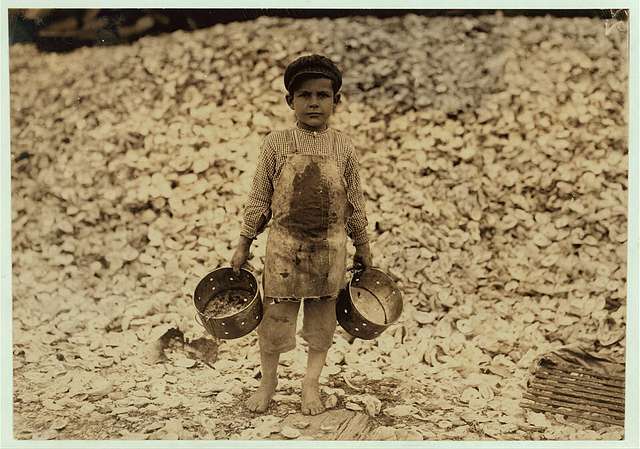Industry News
U.S. Customs & Border Protection's ("CBP") Forced Labor Expo in a Few Words
TweetMar. 23, 2023
By:
Hannah B. Kreinik
CBP’s first Forced Labor Expo took place in Washington D.C. from March 14-15, 2023. CBP’s Acting Commissioner, Troy A. Miller, made clear that forced labor is a top 10 priority trade issue for CBP enforcement. Executive Assistant Commissioner, AnnMarie R. Highsmith, launched Day 1 of the Forced Labor Expo and introduced the keynote speakers for the day, including Commissioner Miller. Nury Turkel, Chair for the U.S. Commission on International Religious Freedom, and Professor Laura Murphy, of Human Rights and Contemporary Slavery at Sheffield Hallam University, each discussed the issue of modern forced labor and the tragedy of its significant impact on international trade. The introductory speeches also established the launch of the CBP UFLPA dashboard on March 14th and the Regional China Zip Code Monitor that went live on March 18th.
 The first-panel discussion focused on due diligence and had a panel of female leaders which was fitting for Women’s History Month. Thea Lee, the Deputy Undersecretary for the U.S. Department of Labor (“DOL”), started the panel by describing the DOL’s research impact on the list of goods subject to forced labor enforcement. Ms. Lee also announced the initiation of not one but two DOL mobile applications to assist with forced labor law compliance. Kelly Fay Rodriguez represented the International Labor Affairs (“ILA”) from the Department of State on the panel and described the ILA’s efforts to inform on forced labor, including funding technical assistance programs to improve labor conditions and collective bargaining. Elnigar Iltebir, Ph.D., from the Senate Select Committee on Intelligence, concluded the panel discussion with an explanation of Congress’ intent behind UFLPA and future endeavors to clarify the rebuttable presumption in the legislation.
The first-panel discussion focused on due diligence and had a panel of female leaders which was fitting for Women’s History Month. Thea Lee, the Deputy Undersecretary for the U.S. Department of Labor (“DOL”), started the panel by describing the DOL’s research impact on the list of goods subject to forced labor enforcement. Ms. Lee also announced the initiation of not one but two DOL mobile applications to assist with forced labor law compliance. Kelly Fay Rodriguez represented the International Labor Affairs (“ILA”) from the Department of State on the panel and described the ILA’s efforts to inform on forced labor, including funding technical assistance programs to improve labor conditions and collective bargaining. Elnigar Iltebir, Ph.D., from the Senate Select Committee on Intelligence, concluded the panel discussion with an explanation of Congress’ intent behind UFLPA and future endeavors to clarify the rebuttable presumption in the legislation.
Day 2 brought a panel discussion on supply chain modernization, with speakers from leading government agencies. Mr. Anil John from the Silicon Valley Innovation Program for the U.S. Department of Homeland Security Science & Technology Directorate, began the panel with an introduction of the department’s draft mapping program for forced labor to help companies trace their supply chains before submitting to CBP. Daniel Solis represented the U.S. Food & Drug Administration (“FDA”) on the panel and expressed the balance of technology solutions and UFLPA violations, as well as sharing information among U.S. government agencies for forced labor enforcement. The Cargo Systems Program representative continued the conversation and described the Robotic Processing Information system that the agency has been using in its enforcement efforts. The panel came to an end with the Laboratories and Scientific Services (“LSS”) for CBP. The LSS representative informed the audience that the type of LSS testing will depend on the questions coming from CBP about the product at issue. LSS also emphasized that companies should have documentary evidence for any CBP submissions for forced labor in supply chains. The key takeaway from the panel seemed to be a resounding call that technology should be an aid to forced labor compliance.
The remaining sessions for both days of the Expo were completed with industry presentations. All the industry presenters emphasized the importance of supply chain tracing and technological mapping for forced labor. Day 2 of the industry presentations had a slight textile focus, with details for cotton and fabric supply chains. All of the presentations, including the introductory remarks and panel discussions, may be viewed via CBP’s tab for the Forced Labor Technical Expo.
If you or your company have forced labor concerns for your production process or would like to access your supply chain for forced labor risks and compliance, please feel free to contact the attorneys at Barnes, Richardson & Colburn.
